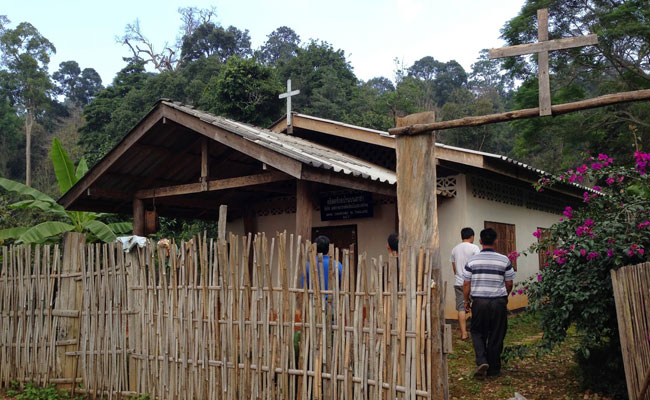

Around the 1960s, the Thai government began taking a census of their hilltribe population and villages became permanent. Much of the land around pristine water sources and prime forests was reclaimed as protected forest areas under the Forestry Department so the Akha could no longer hunt or farm on land they had used for generations.
Their use of long hunting rifles was made illegal. As part of security policy in the mountainous areas, roads were built which provided unprecedented access to formerly remote areas. Also, many villages were forcibly relocated to the lowlands where traditional farming practices are no longer possible due to the nature of the land and lack of access to land. Denied their normal practice of swidden agriculture, the Akha were forced to join the cash economy of rural Thailand.
At around the same time, Christian missionaries were taking advantage of the easier access to the hilltribes in both Burma and Thailand to convert them, and made a significant impact on their traditional lives. The Akha did not have a written language, so missionaries created a Romanized alphabet for the Akha…in order to translate the Bible.
Like other minority groups around the world oppressed by the majority population, it was easy to make them believe in a higher being who will save them. One wonders if the Akha would be better assimilated or accepted by the Thais today if they had turned to Buddhism instead.
Many Akha converted simply because it meant they no longer had to sacrifice precious livestock to appease the spirits, but the missionaries did also promise medical care, schools, and other basic support once a church was built in the village. Some villages have been split by religion, and it is not unusual to find two churches of different denominations at opposing ends of a village.
